The Ministry of Planning and Investment (MPI) is seeking public opinions on the draft Resolution of the National Assembly to pilot the removal of a number of mechanisms and policies stipulated in the Laws for investment in road construction.
The Draft Resolution proposes a number of policies such as: Policy on the proportion of state capital participating in public-private partnership (PPP) projects; policy on assigning localities to be the governing bodies for national highway and expressway investment projects; policy on assigning a locality to decide on investment policies for projects passing through two provinces (regional linkage projects).
Increase the proportion of state capital participating in road PPP projects to no more than 65% of the total project investment.
The Ministry of Planning and Investment said that currently, there are a number of road projects being prepared for investment to create momentum for socio -economic development in disadvantaged areas and regions with security and defense factors. These projects have low initial transportation demand, so more state capital participation is needed to ensure feasibility when calling for investment under the PPP method.
In addition, there are a number of projects passing through the delta area that require a lot of site clearance, accounting for a high proportion of the total project investment. If the regulation "the proportion of state capital participating in PPP projects for the purpose of supporting the construction of works, infrastructure systems under PPP projects and paying compensation, site clearance, support, resettlement; support for temporary construction of works does not exceed 50% of the total investment of the project" (Clause 2, Article 69 of the PPP Law) is properly applied, it will be difficult to ensure financial efficiency and cannot attract investors and credit institutions to implement under the PPP method.
Therefore, it is necessary to have specific regulations and pilot regulations that the competent authority deciding on investment policies can consider and decide on the proportion of state capital participating in the project greater than 50% for road PPP projects to ensure the financial feasibility of PPP projects and the goal of mobilizing private investment capital to build transport infrastructure.
Therefore, the draft Resolution stipulates: "Except for important national projects for which the National Assembly decides on investment policies, competent authorities shall decide on investment policies for remaining projects in difficult and especially difficult socio-economic areas with security and defense factors, and shall consider and decide on the proportion of state capital participating in PPP projects not exceeding 65% of the total project investment for the purposes specified in Point a and Point c, Clause 1, Article 69 of the PPP Law".
According to the Ministry of Planning and Investment, the choice of increasing the state participation rate in PPP projects aims to: Create more motivation in attracting and mobilizing private investment capital in the construction of road projects, contributing to reducing the burden on the state budget and saving resources and the state management apparatus due to the costs of operation, maintenance and exploitation during the project life cycle carried out by the investor.
The State's capital participation in PPP projects is essentially to support the project, as "seed capital" to increase the financial efficiency of the project, and the PPP Law has provisions on risk sharing between the State and investors. When passing the PPP Law, the National Assembly carefully considered this issue and decided on the ceiling level of State capital participating in the implementation of PPP projects. Therefore, although the limit on the State capital ratio is increased, it is also necessary to control the ceiling level of 65% of the total investment of the project (the value of 65% is calculated on average according to previous PPP projects) applied to projects in difficult or extremely difficult areas or with security and defense factors. In cases where the State capital is greater than 65%, it is possible to study project investment in the form of public investment because it will lose the nature of PPP, leading to a decline in the objectives and effectiveness of the PPP investment method.
Assign localities as the governing bodies for national highway and expressway investment projects.
For public investment projects, current regulations do not allow the use of local budgets to invest in projects under the expenditure tasks of the central budget, specifically for road projects under the investment authority of the Ministry of Transport.
In reality, assigning a number of localities with the ability to balance resources, have sufficient capacity and experience in managing and performing the tasks of the governing body together with the Ministry of Transport will create a breakthrough in road infrastructure investment, thereby maximizing the potential and advantages of the localities where the route passes through, improving the efficiency of using the state budget capital of the central and local levels. In Resolution No. 43/2022/QH15 dated January 11, 2022, the National Assembly allowed the Prime Minister to consider and decide on decentralization to the People's Committees at the provincial level with sufficient capacity and management experience to act as the governing body to implement expressway sections under the Socio-Economic Recovery and Development Program. Up to now, the People's Committees of the decentralized provinces are implementing expressway projects under the Program according to their assigned authority.
In order to continue to promote the effective use of state budget capital and unlock resources from central to local levels, the pilot regulation allowing the Prime Minister to assign localities to invest in national highway and expressway projects under the investment authority of the Ministry of Transport is necessary and urgent in the current period.
The draft Resolution stipulates: "The Prime Minister shall consider and decide to assign the People's Committees at the provincial level that can balance investment capital from the local budget, have sufficient capacity and management experience to act as the competent authority to invest in national highway and expressway projects passing through their localities."
According to the Ministry of Planning and Investment, the regulation allowing the Prime Minister to consider and decide to assign the provincial People's Committee as the governing body aims to: Mobilize local resources to invest in important national works and projects that are of great significance to the socio-economic development of their localities; Promote autonomy, enhance the responsibility of local leaders and the capacity of officials in charge of project management and operation; facilitate the assurance of security, order and traffic safety; mobilize local labor forces to participate in the investment and construction process; Delegate proactive authority to localities in planning, connecting infrastructure, determining the location of necessary intersections to create space for economic development; attract investment, exploit land funds along the route; control raw material mines right from the licensing stage; manage prices, avoid speculation and profiteering; facilitate site clearance, shorten implementation time, and assign responsibilities to relevant parties...
However, the localities assigned as the competent authorities must have sufficient capacity and experience according to the provisions of the law on construction to organize and implement the project.
Regarding additional investment in items within the scope of the PPP project that are being exploited but have not been invested in the PPP project, in the past, the Ministry of Transport has implemented many projects to upgrade and renovate national highways, in the form of BOT contracts on existing roads. According to the decision approving the project investment, there are a number of road bridges within the scope of the project but not within the scope of investment of the PPP project (these bridges are kept at the same scale for exploitation, not invested in expansion). In addition, there are a number of projects to upgrade, renovate and expand national highways and expressways under the form of BOT in the past, but now need to continue to expand or add a number of items such as overpasses, intersections, etc. to promote investment efficiency. After a period of exploitation, traffic volume on the route has increased, at the bridge locations, bottlenecks have been created, leading to frequent local congestion, hindering the socio-economic development of the area through which the route passes.
Regarding investment capital: using the budget of the BOT investor in operation. However, when investing in additional items, it will lead to an extension of the toll collection period, which is not in accordance with Resolution No. 437/NQ-UBTVQH14 and the PPP Law, which may cause public outrage; According to current regulations, investment in expanding bridges on national highways is under the authority of the Ministry of Transport. However, capital from the central budget is limited, focusing on large, important national projects. Up to now, some localities have mobilized resources and wish to use local budgets to invest in these items. Therefore, it is necessary to have regulations allowing localities to use local budgets to invest in items under the expenditure tasks of the central budget.
The Draft Resolution stipulates: For additional investment and expansion of bridge and road items within the scope of PPP projects in operation but not yet invested in PPP projects, the competent state agency signing the project contract and the project investor shall negotiate and adjust the project and project contract according to regulations.
In case the project investor is unable to invest in additional items, the following shall be done: The competent state agency signing the project contract and the BOT project investor shall review and assess the impact, planning, and necessity of investment in additional items for the project. The locality where the additional items are under the scope of land management according to the land law, based on agreement with the competent state agency signing the project contract and the investor, shall decide to invest in additional items using the local budget. After completing the investment, the locality shall hand over to the unit managing the BOT project for management, exploitation, and maintenance according to regulations.
The above investment procedures and order shall comply with the provisions of the law on public investment, the law on PPP and other relevant regulations.
The selection of additional investment solutions for items within the scope of the PPP project being exploited but not yet invested in the PPP project is to solve the following problems: In case the investment in additional items is not included in the local planning and the Ministry of Transport cannot balance the resources for investment, allowing localities to consider and arrange local budgets to invest in items and routes that are the expenditure tasks of the central budget, the pilot regulations are different from Clause 9, Article 9 of the State Budget Law, in order to clear local congestion points that have not been invested in on the route, ensure traffic safety, smooth operation and exploitation, meeting the needs of socio- economic development. Because the road projects are being invested in the PPP method, the BOT contract type is in the operation and exploitation phase, the Ministry of Transport and investors, project enterprises need to negotiate and negotiate additional contract appendices in the work for maintenance and repair during the exploitation and use process. Due to only changes in authority in the Laws, the National Assembly needs to consider issuing a Resolution. Regarding the order and procedures for investment projects, they are implemented in accordance with the provisions of the law on public investment, the law on PPP and other relevant regulations.
Wisdom
Source




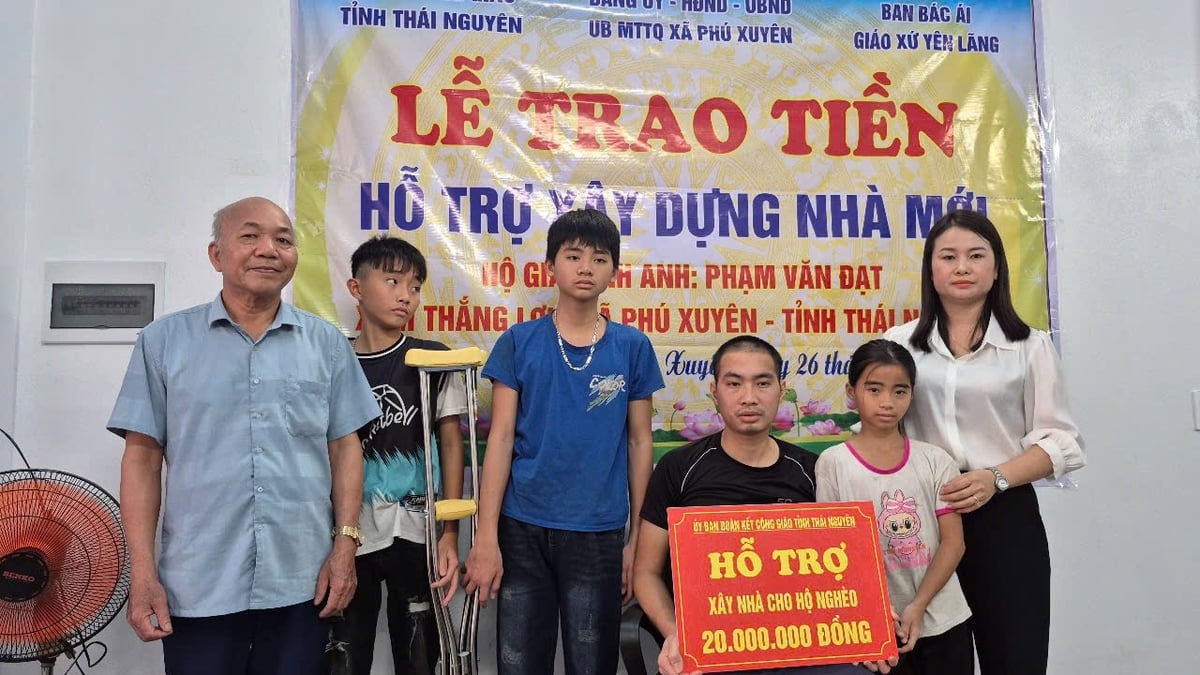


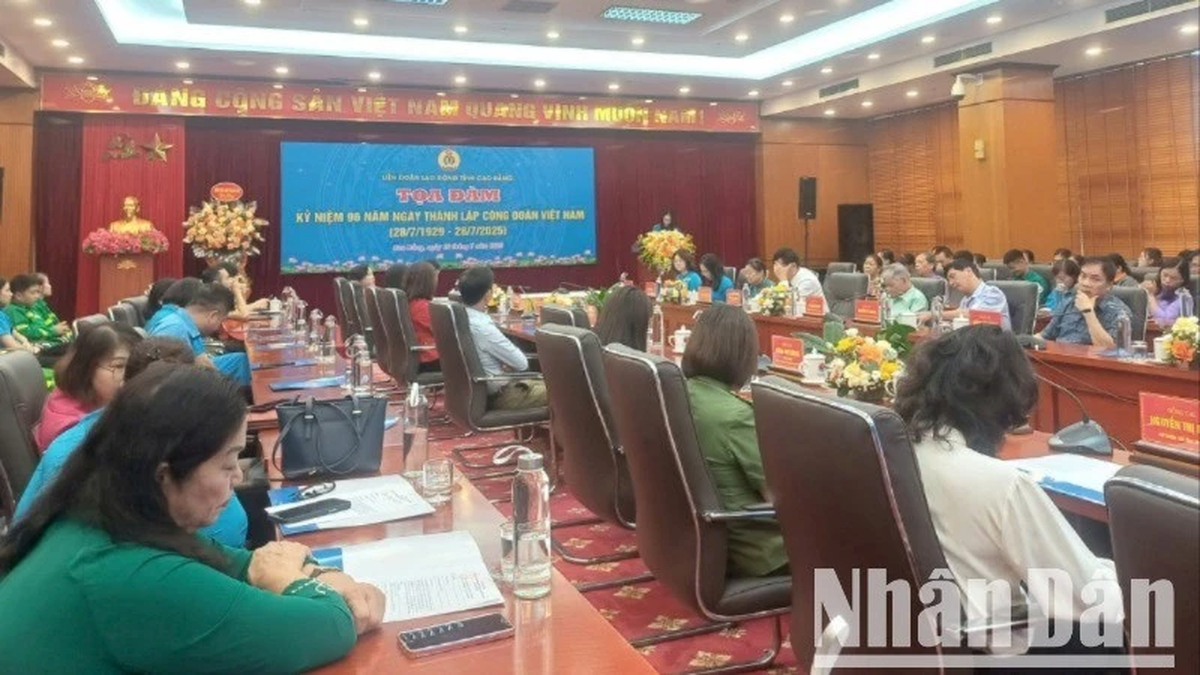
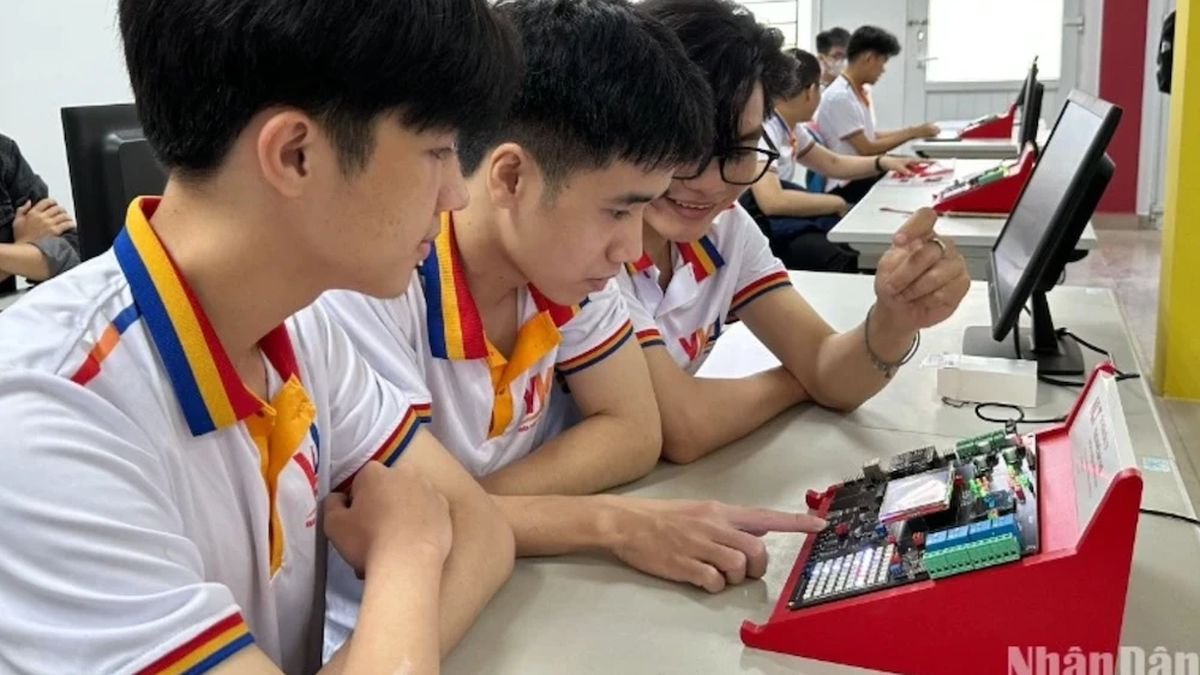

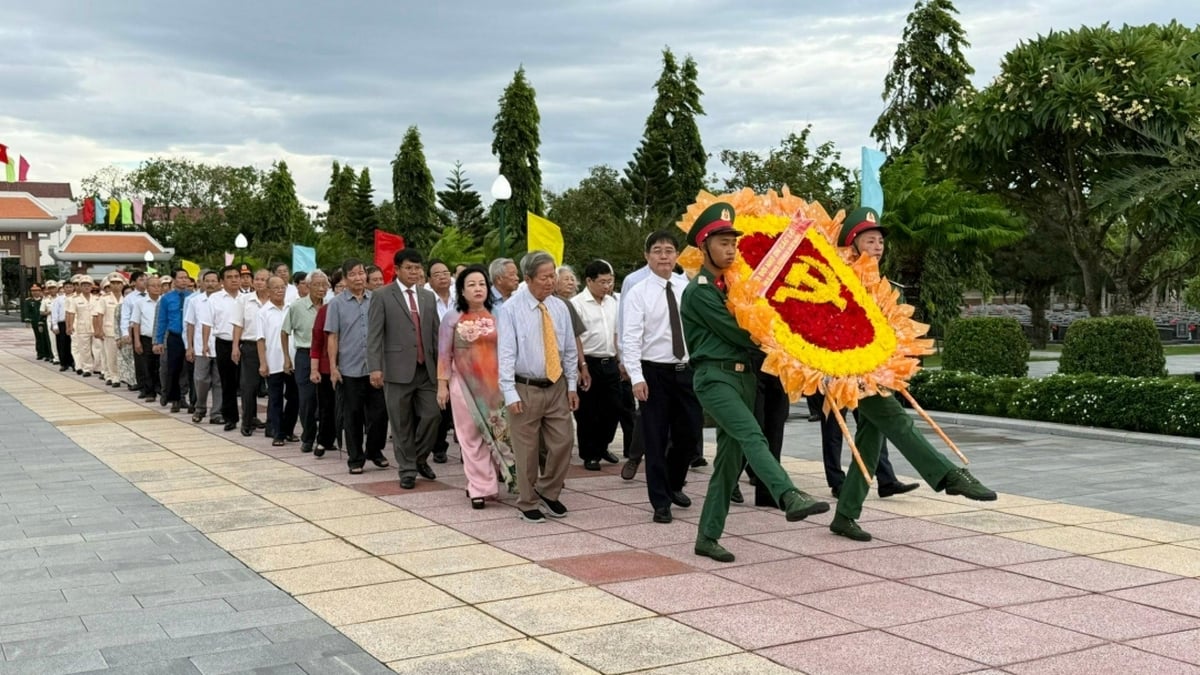















![[Photo] Signing of cooperation between ministries, branches and localities of Vietnam and Senegal](https://vphoto.vietnam.vn/thumb/1200x675/vietnam/resource/IMAGE/2025/7/24/6147c654b0ae4f2793188e982e272651)


































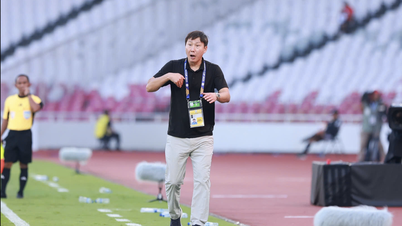











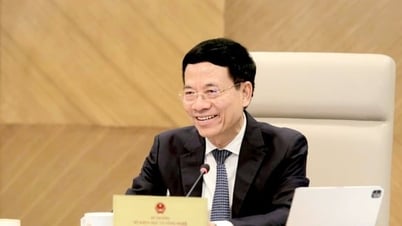

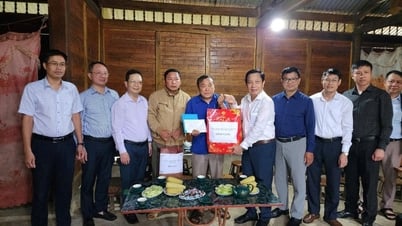
























Comment (0)